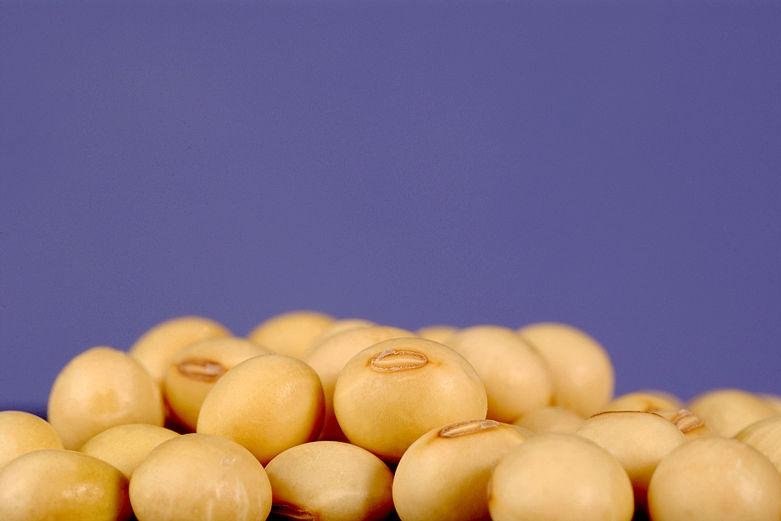Soy foods like soybeans may actually help prevent breat tumor recurrence and aid in breast cancer treatment. Photo by CSIRO/CC
WASHINGTON, April 20 (UPI) -- For women battling breast cancer, soy foods and soy-based supplements are a no-no. It's believed soy can disrupt a patient's anti-estrogen treatment.
But new research suggests soy may actually be beneficial for cancer survivors, boosting the cancer-fighting immune system and diminishing the chance of a recurrence of breast cancer.
The new research doesn't undermine the previous wisdom, but it does complicate things.
"I am concerned that some patients may start taking soy supplements when they shouldn't and that others will stop eating soyfoods when they could really benefit from them," the study's lead researcher, Leena Hilakivi-Clarke, a professor of oncology at Georgetown Lombardi, said in a press release.
Previous studies have shown that an isoflavone known as genistein -- a type of soy found in soybeans, fava beans, soy milk and other foodstuff -- can block anti-estrogen treatments in mice who do not have breast cancer-fighting immune cells called cytotoxic T cells. Estrogen allowed to proliferate unfettered can encourage tumor growth.
But other studies have proven genistein beneficial to cancer therapies. Rats fed soy for their entire lives responded better to anti-estrogen treatment and had lower rates of cancer recurrence.
Researchers guessed that the missing T cells in mice had something to do with it. Whereas some immune cells attack tumors, others can be coopted into hiding the tumors from the immune system. When soy boosts the immune system, both good and bad immune cells my be empowered. But T cells seem to be incorruptible.
To test their ideas researchers attempted to replicate the rat study to observe the effects of soy on cytotoxic T cells. Researchers found that rats fed soy since before puberty featured a strong T cell immune response. The response was activated prior to the anti-estrogen treatment, and remained strong throughout.
The study helps explains why women with a history of high soy consumption have lower rates of breast cancer recurrence.
"Our results suggest that genistein's ability to activate anti-tumor immune responses and reduce expression of immunosuppressive mechanisms may explain why lifetime genistein intake reduces risk of breast cancer recurrence," Hilakivi-Clarke said.
"But it is critical that genistein is consumed well before a tumor develops to program the tumor to exhibit good immune responses," doctoral student Xiyuan Zhang, the study's lead author, added.
Zhang and Hilakivi-Clarke are presenting their findings this week at the American Association for Cancer Research Annual Meeting 2015, held in Philadelphia.















